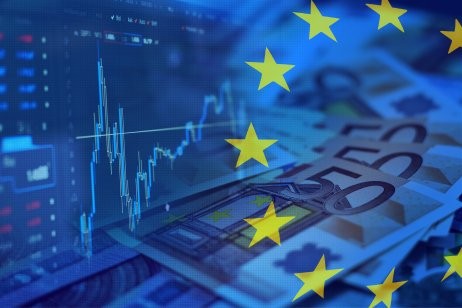European markets opened in negative territory on Friday, slipping back after the European Central Bank’s widely anticipated interest rate cut and amid rising geopolitical jitters. The move marks a shift in tone for investors who had recently grown more confident about the region’s economic outlook.
The pan-European Stoxx 600 index fell by around 0.4% in early trading, with losses across sectors led by autos, technology and financials. Germany’s DAX and France’s CAC 40 both dipped slightly, while London’s FTSE 100 also opened marginally lower despite support from energy stocks. The euro, meanwhile, strengthened modestly following Thursday’s rate decision.
The ECB’s quarter-point cut brought its benchmark deposit rate down to 3.75%, its first such move since the bank began tightening policy in 2022. Though long expected, the rate cut signals a delicate recalibration as the bank attempts to stimulate growth without reigniting inflationary pressures. Eurozone inflation eased to 2.6% in May, down from 2.9% in April, allowing policymakers more room to manoeuvre.
Investors were also digesting a volatile political backdrop. Markets remain unsettled by a brewing feud between U.S. President Donald Trump and Tesla CEO Elon Musk, which spilled into public view this week. Trump’s threat to cancel key SpaceX government contracts and revoke favourable regulatory status has rattled sentiment, particularly within the technology and defence sectors.
Tesla shares plunged more than 14% in U.S. trading on Thursday, wiping out over $150 billion in market value. The ripple effect was evident in Europe, where several tech suppliers with exposure to Tesla and SpaceX saw their stocks decline. Analysts are warning that continued antagonism between Washington and Silicon Valley could have broader implications for investment flows and market confidence.
Adding to the cautious tone, traders are awaiting key U.S. employment data due later today. The non-farm payroll report for May is expected to show a modest gain of 130,000 jobs, with unemployment steady at 4.2%. Any significant deviation from forecasts could sway expectations around future U.S. interest rate cuts, thereby influencing global equity and currency markets.
In Nordic markets, trading activity was subdued as Sweden observed its National Day, with Nasdaq Stockholm closed for the session. Other European exchanges are expected to see lighter volumes as the summer holiday season begins to take effect.
Despite Friday’s weaker open, analysts suggest that Europe remains well-positioned for gradual recovery. Softer inflation, falling energy prices and early signs of industrial stabilisation have buoyed sentiment in recent weeks. However, geopolitical uncertainty and fragmented global growth continue to pose downside risks.
For now, European investors appear to be balancing cautious optimism against a complex mix of policy shifts, political surprises and economic crosswinds. As central banks pivot slowly toward looser conditions, market resilience will likely depend on the absence of further shocks, and the credibility of governments and institutions navigating an increasingly fractured world stage.
newshub finance









Recent Comments